

E-Books → The Arab Nahdah The Making of the Intellectual and Humanist Movement
Published by: voska89 on 4-08-2022, 00:15 |  0
0

Abdulrazzak Patel, "The Arab Nahdah: The Making of the Intellectual and Humanist Movement"
English | 2013 | pages: 268 | ISBN: 074864069X | PDF | 1,1 mb
To understand today's Arab thinking, you need to go back to the beginnings of modernity: the nahdah or Arab renaissance of the 19th and early 20th centuries. Abdulrazzak Patel enhances our understanding of the nahdah and its intellectuals, looking back to its origins in the 1700s and taking into account important internal factors alongside external forces. He explores the key factors that contributed to the rise and development of the nahdah, he introduces the humanist movement of the period that was the driving force behind much of the linguistic, literary and educational activity. Drawing on intellectual history, literary history and postcolonial studies, he argues that the nahdah was the product of native development and foreign assistance and that nahdah reformist thought was hybrid in nature. Overall, this study highlights the complexity of the movement and offers a more pluralist history of the period.
E-Books → Experience intellectual love Love is something very few of us experience
Published by: voska89 on 3-08-2022, 23:43 |  0
0

Experience intellectual love: Love is something very few of us experience by Emma William
English | 2022 | ISBN: N/A | ASIN: B0B3VN5N47 | 610 pages | EPUB | 1.55 Mb
Loving is important, not receiving it back. I think every one of us should experience it once in life. Love has got a very beautiful feeling and the way I got the meaning of love is; love as hard as you can, be a good person to yourself and to the opposite person, but never expect love from him/her. You love, that's everything. If you love, then accept everything about that person. Accept every hardship and every pain. That's love. If you keep it in your heart and if you think that's the one you want, then one day he/she will notice how much you love them .
E-Books → Guidebook to Intellectual Property, 7th Edition
Published by: voska89 on 29-07-2022, 23:59 |  0
0

English | 2022 | ISBN: 1509948678 | 287 pages | True PDF EPUB | 13.54 MB
"This book is a classic... its style and content remain invaluable." Entertainment Law Review
This is the new edition of a unique book about intellectual property. It is for those new to the subject, both law students and others such as business people needing some idea of the subject. It provides an outline of the basic legal principles, educating the reader as to the shape of the law. Critically, it also gives an insight into how the system actually works. You cannot understand chess by merely learning the rules – you also have to know how the game is played: so too with intellectual property.
E-Books → A Tear Is an Intellectual Thing The Meanings of Emotion
Published by: voska89 on 27-07-2022, 14:43 |  0
0
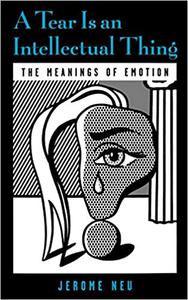
Jerome Neu, "A Tear Is an Intellectual Thing: The Meanings of Emotion "
English | ISBN: 0195123379 | 2000 | 352 pages | PDF | 1148 KB
Is jealousy eliminable? If so, at what cost? What are the connections between pride the sin and the pride insisted on by identity politics? How can one question an individual's understanding of their own happiness or override a society's account of its own rituals? What makes a sexual desire "perverse," or particular sexual relations (such as incestuous ones) undesirable or even unthinkable? These and other questions about what sustains and threatens our identity are pursued using the resources of philosophy, psychoanalysis, and other disciplines. The discussion throughout is informed and motivated by the Spinozist hope that understanding our lives can help change them, can help make us more free.
E-Books → Innovation, Competition and Consumer Welfare in Intellectual Property Law
Published by: voska89 on 24-07-2022, 11:48 |  0
0
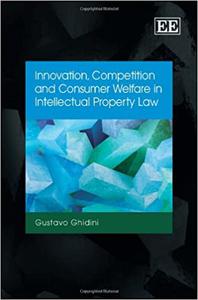
Gustavo Ghidini, "Innovation, Competition and Consumer Welfare in Intellectual Property Law"
English | ISBN: 184720970X | 2010 | 304 pages | PDF | 1475 KB
This authoritative book provides a comprehensive critical overview of the basic IP paradigms, such as patents, trademarks and copyrights. Their intersection with competition law and their impacts on the exercise of social welfare are analysed from an evolutionary perspective.The analyses and proposals presented encompass the features and rationales of a legal field in constant evolution, and relate them to increasingly rapid technological, economic, social and geo-political developments. Gustavo Ghidini highlights the emerging trends that challenge the traditional â??all-exclusionaryâ?? vision of IP law and its application. The author expertly combines holistic, evolutionary and constitutionally oriented approaches, with the search for a rebalancing of the IP rights holdersâ?? positions with citizensâ?? and usersâ?? rights.This book will appeal to academics, scholars and lawyers specializing in the realm of intellectual property, competition and comparative law.
E-Books → Intellectual Property and the Brain
Published by: voska89 on 16-07-2022, 17:10 |  0
0
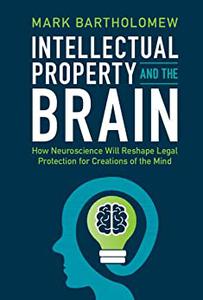
Intellectual Property and the Brain:
How Neuroscience Will Reshape Legal Protection for Creations of the Mind
English | 2022 | ISBN: 1009189565 | 205 Pages | PDF | 2 MB
E-Books → Age of Enlightenment The Philosophical and Intellectual Movement Called the Age of Reason [Audiobook]
Published by: voska89 on 14-07-2022, 03:05 |  0
0
![Age of Enlightenment The Philosophical and Intellectual Movement Called the Age of Reason [Audiobook] Age of Enlightenment The Philosophical and Intellectual Movement Called the Age of Reason [Audiobook]](https://i120.fastpic.org/big/2022/0714/1a/e7bd96572c952397431be9fccaaef71a.jpeg)
English | ASIN: B0B69B6TWH | 2022 | 1 hour and 24 minutes | MP3 | M4B | 116 MB
Finally.finally, humanity began to wake up. Finally, they decided to take science, knowledge, politics, development, multiple angles and perspectives, and the details of our everyday lives a bit more seriously. For centuries, raw and primal urges and principles had taken hold of conquerors, officials, and governments. But there was a light at the end of the tunnel. Humanity just needed to acknowledge knowledge. It needed to value the art of studying phenomena and learning, not just spiritual notions and religion. Welcome to the book about how this happened. Welcome to a glimmer of hope in humanity's realization of what this world is and what lies in the elements yet to be discovered.
E-Books → National Intellectual Capital and the Financial Crisis in Israel, Jordan, South Africa, and Turkey
Published by: voska89 on 13-07-2022, 12:06 |  0
0
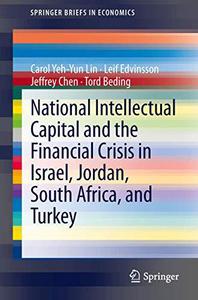
National Intellectual Capital and the Financial Crisis in Israel, Jordan, South Africa, and Turkey By Carol Yeh-Yun Lin, Leif Edvinsson, Jeffrey Chen, Tord Beding (auth.)
2014 | 107 Pages | ISBN: 1461479800 | PDF | 3 MB
In the first decade of the twenty-first century, the biggest event of worldwide proportion was the 2008 global financial crisis, which was caused primarily by ineffective governance, failed surveillance systems, and implementation flaws. While fiscal and monetary policies succeeded in pulling many countries out of a financial freefall, most economies have performed beneath pre-recession levels as governments continued to struggle with their finances. Examining the financial crisis from the viewpoint of intangible assets provides a different perspective from traditional economic approaches. National Intellectual Capital (NIC), comprised mainly of human capital, market capital, process capital, renewal capital, and financial capital, is a valuable intangible asset and a key source of national competitive advantage in today's knowledge economy. The authors-pioneers in the field-present extensive data and a rigorous conceptual framework to analyze the connections between the global financial crisis and NIC development. Covering the period from 2005 to 2010 across 48 countries, the authors establish a positive correlation between NIC and GDP per capita and consider the impact of NIC investment for short-term recovery and long-term risk control and strategy formulation.Each volume in a series of SpringerBriefs on NIC and the financial crisis provides in-depth coverage of the impact of the crisis, the aftermath, future prospects, and policy implications for a regional cluster. This volume focuses on Israel, Jordan, South Africa, and Turkey.
E-Books → National Intellectual Capital and the Financial Crisis in Austria, Belgium, the Netherlands, and Switzerland
Published by: voska89 on 13-07-2022, 12:05 |  0
0
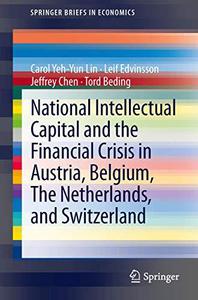
National Intellectual Capital and the Financial Crisis in Austria, Belgium, the Netherlands, and Switzerland By Carol Yeh-Yun Lin, Leif Edvinsson, Jeffrey Chen, Tord Beding (auth.)
2014 | 109 Pages | ISBN: 1461480205 | PDF | 3 MB
In the first decade of the twenty-first century, the biggest event of worldwide proportion was the 2008 global financial crisis, which was caused primarily by ineffective governance, failed surveillance systems, and implementation flaws. While fiscal and monetary policies succeeded in pulling many countries out of a financial freefall, most economies have performed beneath pre-recession levels as governments continued to struggle with their finances. Examining the financial crisis from the viewpoint of intangible assets provides a different perspective from traditional economic approaches. National Intellectual Capital (NIC), comprised mainly of human capital, market capital, process capital, renewal capital, and financial capital, is a valuable intangible asset and a key source of national competitive advantage in today's knowledge economy. The authors-pioneers in the field-present extensive data and a rigorous conceptual framework to analyze the connections between the global financial crisis and NIC development. Covering the period from 2005 to 2010 across 48 countries, the authors establish a positive correlation between NIC and GDP per capita and consider the impact of NIC investment for short-term recovery and long-term risk control and strategy formulation.Each volume in a series of SpringerBriefs on NIC and the financial crisis provides in-depth coverage of the impact of the crisis, the aftermath, future prospects, and policy implications for a regional cluster. This volume focuses on Austria, Belgium, the Netherlands, and Switzerland.
E-Books → National Intellectual Capital and the Financial Crisis in Bulgaria, Czech Republic, Hungary, Romania, and Poland
Published by: voska89 on 13-07-2022, 10:00 |  0
0
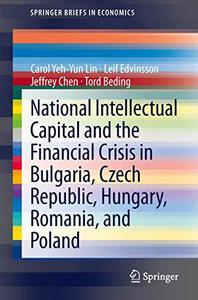
National Intellectual Capital and the Financial Crisis in Bulgaria, Czech Republic, Hungary, Romania, and Poland By Carol Yeh-Yun Lin, Leif Edvinsson, Jeffrey Chen, Tord Beding (auth.)
2014 | 119 Pages | ISBN: 1461480175 | PDF | 5 MB
In the first decade of the twenty-first century, the biggest event of worldwide proportion was the 2008 global financial crisis, which was caused primarily by ineffective governance, failed surveillance systems, and implementation flaws. While fiscal and monetary policies succeeded in pulling many countries out of a financial freefall, most economies have performed beneath pre-recession levels as governments continued to struggle with their finances. Examining the financial crisis from the viewpoint of intangible assets provides a different perspective from traditional economic approaches. National Intellectual Capital (NIC), comprised mainly of human capital, market capital, process capital, renewal capital, and financial capital, is a valuable intangible asset and a key source of national competitive advantage in today's knowledge economy. The authors-pioneers in the field-present extensive data and a rigorous conceptual framework to analyze the connections between the global financial crisis and NIC development. Covering the period from 2005 to 2010 across 48 countries, the authors establish a positive correlation between NIC and GDP per capita and consider the impact of NIC investment for short-term recovery and long-term risk control and strategy formulation.Each volume in a series of SpringerBriefs on NIC and the financial crisis provides in-depth coverage of the impact of the crisis, the aftermath, future prospects, and policy implications for a regional cluster. This volume focuses on Bulgaria, Czech Republic, Hungary, Romania, and Poland.



